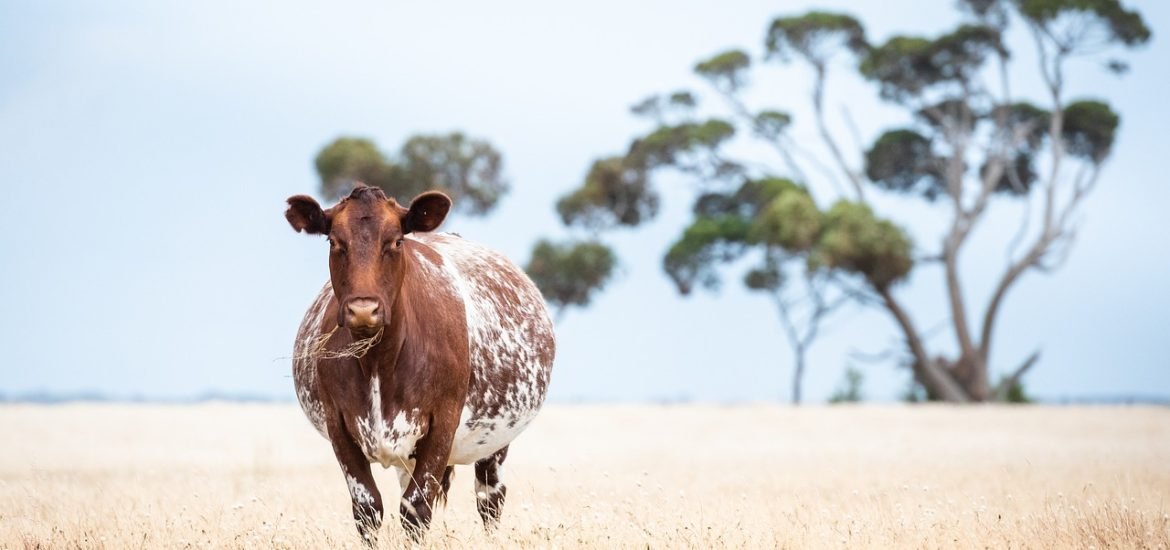
Adding a species of red algae — called red sea plume — decreases methane production from cow faeces, according to a study published in the scientific journal Frontiers in Sustainable Systems.
About 1/3 of all methane produced is emitted by ruminant livestock, mostly cattle, sheep, and goats. These animals digest their food through fermentation and produce methane either by belching or from the decomposition of their manure.
To reduce methane production, a team of researchers from the Swedish University of Agricultural Sciences, Uppsala, Sweden, tested whether adding the tropical algae Asparagopsis taxiformis (AT), commonly known as red sea plume, to cow faeces could reduce greenhouse gas emissions from manure.
This red algae is normally found in tropical and warm waters. It contains bromoform, which can block the process which produces methane. At the moment, the red sea plume is the most promising natural methane inhibitor.
There have been many attempts to add AT to cow’s feed to lower methane production. The problem with this approach is that it contains high levels of iodine. If cows are supplemented with too much AT, it also increases iodine levels in milk, which can be toxic to humans in high concentrations. For example, high levels of iodine cause various health issues, including thyroid problems. Researchers are trying to develop AT in the lab with lower iodine levels.
The second option is adding directly to cow’s faeces, where iodine levels are not an issue. “There have been many studies using AT in dairy cows’ diets to reduce enteric methane production. However, no studies have reported on the decrease of methane emissions from manure,” said Dr. Mohammad Ramin, an animal science researcher at the Swedish University of Agricultural Sciences.
The production of methane from manure depends on several factors, including storage conditions. Manure stored in the cool-temperate climate is responsible for about 12% of total methane emissions from the dairy system. “Manure methane production does contribute to global greenhouse gas emission and needs to be reduced,” Ramin said. “Our study showed a potential way how methane inhibitors could be utilised to do that.”
Preliminary results were very promising. Adding AT to the faeces of cows reduced methane production by almost half compared to faeces without AT. In addition, methane production from faeces of cows supplemented with AT in their diet was the same as from the faeces of cows that had not been fed the alga, which means adding AT to manure would still be beneficial.
The authors point out that this is just the first study, and more research is needed to determine if it can be used on a large scale. In addition, researchers still need to investigate the interactions between the alga and the faecal microbiome to ensure no harmful chemicals are produced.
Ramin M, Chagas J, Pal Y, Danielsson R, Fant P and Krizsan S (2023) Reducing methane production from stored feces of dairy cows by Asparagopsis taxiformis. Front. Sustain. Food Syst, 7, https://doi.org/10.3389/fsufs.2023.1187838